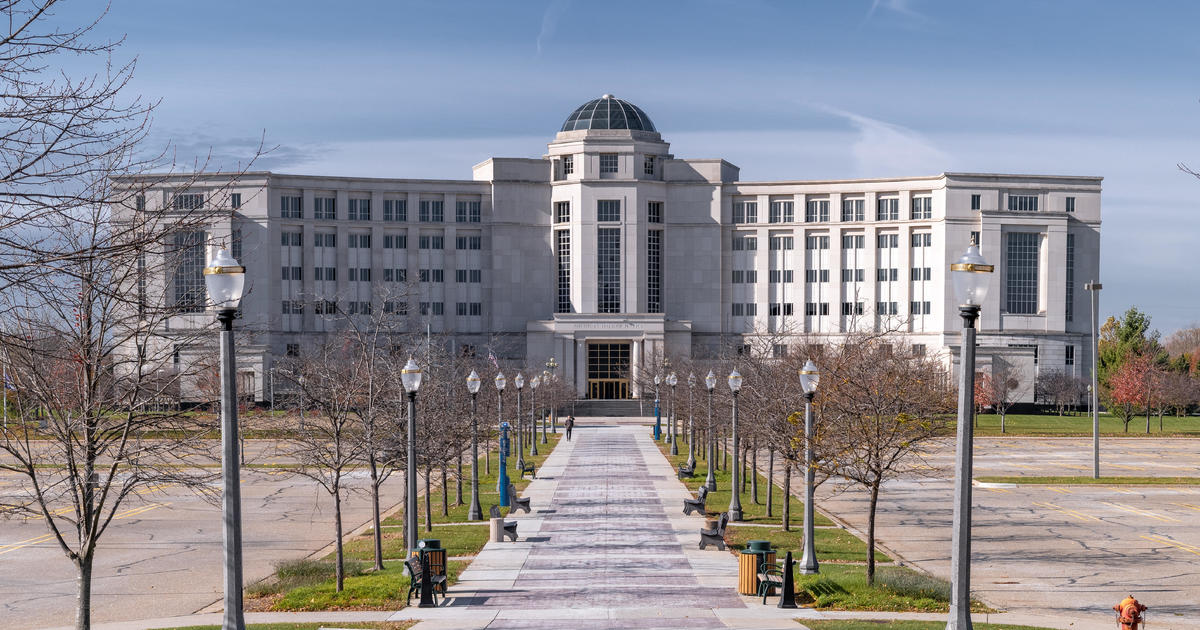Households Would Pay $474 More In Taxes Under Road Proposal
DAVID EGGERT, Associated Press
LANSING (AP) — The state sales tax would go up a penny on the dollar. The gasoline tax would rise with inflation, likely more. The annual vehicle registration tax would be higher.
If voters approve a measure on Michigan's May 5 ballot to improve roads and bridges, the $2.1 billion tax hike would average $545 per household in 2016 — or $45 a month — according to calculations by The Associated Press. The per-household tax increase would fall to $474, or $40 per month, in 2017 when low- to moderate-income residents become eligible for a larger tax credit under Proposal 1.
Just how much more taxes people pay would vary and depend on family incomes, future fuel prices and consumer choices: what they buy, how much they drive, the type and age of their car.
The average tax hike for the middle fifth of Michigan households — those making $40,000 to $64,000 a year — would be $267, or $22 a month, according to an analysis by the Washington-based Institute on Taxation and Economic Policy for the Michigan League for Public Policy, an advocacy group in Lansing focused on poverty.
Those in the bottom fifth earning less than $20,000 would see a $24 annual tax cut on average. The top bracket of earners with incomes primarily ranging from $100,000 to $431,000 would pay on average $497 to $697 more a year, the study found.
The Mackinac Center for Public Policy, a free-market think tank in Midland, says it is tough to estimate Proposal 1's impact on a typical resident because the measure has so many components. The group's estimated increased tax burden is $477 to $525 per household, with Earned Income Tax Credit recipients receiving an average $69 tax cut.
"It varies as much by behavior as by income. If you have multiple cars in your family and drive a lot and have a boat, you're getting hammered. If you don't drive a lot, have one car, don't have a boat, it doesn't affect you nearly as much," said Patrick Anderson, principal and CEO of Anderson Economic Group in East Lansing.
His firm analyzed what the constitutional amendment and related laws would mean in 2017 for representative households under various scenarios. His projections are based on the plan as written and would be lower if not for provisions in the package that appear to have unintended effects and may be fixed by lawmakers later:
— A couple without kids, two cars and $65,000 in annual income would pay $642 more in taxes, according to the Anderson Economic Group.
— A single mother with one child, a "beater" car and $21,000 in income would see a $112 tax cut.
— A college student who often borrows a car and has $8,000 in income would pay an extra $102.
— A single renter with one car and $50,600 in income would pay $293 more.
— A family of four with $58,000 in income, two cars and that uses a boat to fish would pay an additional $669.
— A family of five with $120,000 in income, two cars and a boat would pay $913 more.
— A family of five with $210,000 in income, three cars and a large boat would pay an extra $1,298.
The Republican-led Legislature would likely amend the law to make certain that license plate taxes — which would no longer decline gradually in the three years after a new car is bought to reflect the vehicle's depreciating value — continue to be deductible on federal tax returns.
Anderson projects that families losing the itemized deduction would pay anywhere from $72 to $187 more in federal income tax in 2017. Republican Gov. Rick Snyder, a Proposal 1 supporter, disagrees with interpretations that the deduction would no longer be permissible. The IRS has declined to weigh in.
Dave Waymire, a spokesman for the Safe Roads Yes ballot committee campaigning for the measure's passage, said most residents do not claim itemized deductions on federal returns. Crummy roads cost drivers an extra $539 a year in vehicle operating costs due to repairs, tire wear and increased fuel consumption, according to the proposal's proponents who cite a report from the transportation research group TRIP.
"Many Michigan residents today pay a hidden tax for our poor roads by virtue of the high cost of repairs that are incurred due to potholes, extra wear and tear on their vehicles," Waymire said. "If you consider the hidden tax, which our opponents refuse to acknowledge, this is a substantial savings for Michigan."
Another "unadvertised feature" of the plan is that taxes on fuel sold for boats, off-road vehicles and lawnmowers would rise significantly because the fuel would not be exempt from the sales tax, Anderson said. The new 7 percent sales tax would only be removed from fuel used to operate motor vehicles on public roads, raising compliance issues since the vast majority of fuel is sold by gas stations without regard to whether someone is filling up a car, boat or gas can, according to the nonpartisan Citizens Research Council of Michigan.
"Some promise it will be fixed. It's not fixed now, so we included it," said Anderson. He said he is not a "fan" of Proposal 1 but when his research company crunches numbers, "we do them straight."
___
Online:
Citizens Research Council analysis: http://bit.ly/1O08kpz
House Fiscal Agency analysis: http://1.usa.gov/1IRQm77
Mackinac Center analysis: http://bit.ly/1NmhAti
Michigan League analysis: http://bit.ly/1aRGX4X
___
Follow David Eggert at http://twitter.com/DavidEggert00
Copyright 2015 The Associated Press. All rights reserved. This material may not be published, broadcast, rewritten or redistributed.



